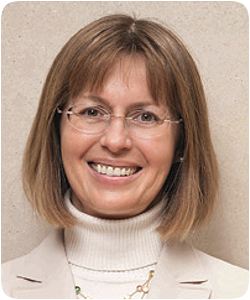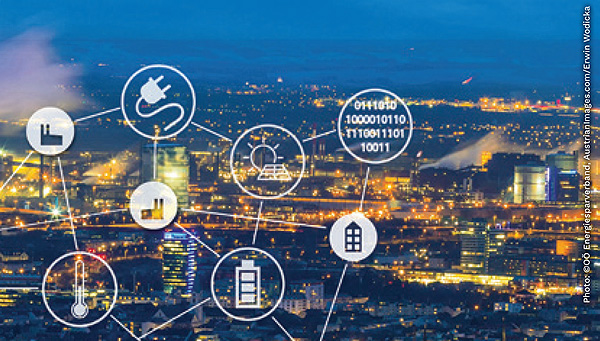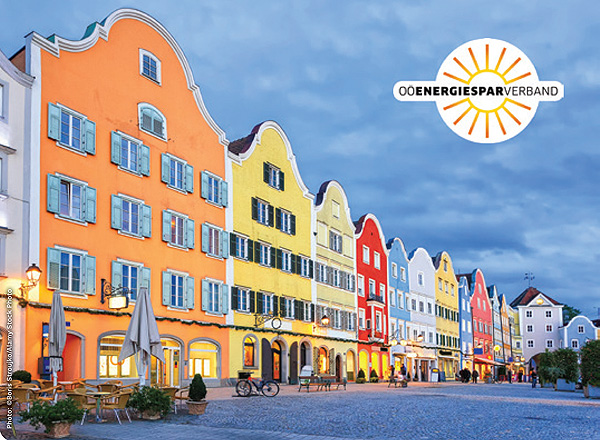 Managing to stay competitive in a changing energy world.
Managing to stay competitive in a changing energy world.
Upper Austria is a European leader in the clean energy transition. Greenhouse gas emissions in the buildings sector have been reduced by 43 % in 10 years through a combination of energy efficiency and renewable energy. The regional government has been following a strategic and long-term vision in the face of the changing global energy world. Fostering cooperation among key market actors along the entire value chain has resulted in a strong innovation ecosystem and the growth of a vibrant industry that successfully exports worldwide.
COMPETITIVENESS AND QUALITY OF LIFE THROUGH DECARBONISATION
The progress seen in Upper Austria is mainly attributed to the clear vision pursued by the regional government for over two decades. The ambition is to achieve competitiveness and quality of life through energy decarbonisation. A strong focus is on energy and buildings, but also on developing and maintaining leadership in niche markets of energy and building products. The aim is to create and nurture an innovation ecosystem where this innovation can grow.
INNOVATION ECOSYSTEM IN THE BUILDING SECTOR
Transforming the building sector requires an awareness of its entire value chain. Every step of the process – R&D, manufacturing of technologies, sales, planning and construction, operation and maintenance – involves different actor groups and needs to be addressed. The OÖ Energiesparverband (ESV), the regional energy agency, is a main driver of the innovation process. Key stakeholders include technology companies, research organisations, public bodies and a community of "first movers" (private households, municipalities, businesses). A crucial element is a user-centred approach where energy users are important actors for innovation creation.

MARKET PUSH AND PULL THROUGH REGULATORY AND FINANCIAL MEASURES
In Austria, building legislation and the implementation of the EPBD are regional. In Upper Austria, regional legislation for buildings and heating and cooling systems are strategically used to drive innovation by regularly updating them towards higher efficiency and lower emissions.
Funding programmes that target the various steps of the innovation process are also strong tools. Different programmes support R&D, market introduction of new technologies and their subsequent mass deployment. The region has implemented market introduction programmes for solar batteries, small-scale biomass CHP, large scale PV systems for self-consumption and several other energy efficiency and renewable energy technologies.
THE IMPORTANCE OF "EARLY ADOPTERS"
Early adopters are typically interested and knowledgeable about energy technologies, keen to try new things and willing to suffer certain "growing pains". These are homeowners, business owners, leaders in municipalities or installers that take a conscious decision to try something new. They are valuable in an innovation ecosystem as they help companies test their products and services on the home market. The ESV puts a special focus on making them an integrated part of the innovation process by keeping them updated on new technologies, providing training courses and developing dedicated funding programmes. Energy technology companies can more easily export products and services to the rest of the world if they have a reliable home base where they can test innovation and that offers economic stability.

INNOVATION THROUGH INFORMATION AND NETWORKING
Information is a "glue" that keeps an innovation ecosystem together. This works best if applied as a range of day-to-day activities that reach out to actors in different ways. For the ESV, this takes many forms: 10,000 face-to-face energy advice sessions to homeowners, businesses and municipalities every year supporting them in their investment decision making process; the participation in tradeshows (such as the Energiesparmesse that takes place every year in Wels in parallel with the World Sustainable Energy Days); newsletters, events and the provision of trainings that are usually focused on new technologies and funding programmes. The ESV supports more than 140 energy technology companies in the context of the Cleantech-Cluster Energy.
The long term efforts invested in fostering the innovation ecosystem in the building sector have paid off. In addition to enabling a significant reduction in greenhouse gas emissions, they have ensured a strong market of competitive companies and the development of a range of innovative products and services.
THERE IS NO END TO INNOVATION
Innovation is an ongoing process. Upcoming tasks include managing the opportunities and challenges of digitisation, continuing to look for niche markets and setting a strong focus on the decarbonisation of the manufacturing sector. However, the small Upper Austrian innovation ecosystem is imbedded in the much larger worldwide innovation ecosystem. In order to move towards an energy system that is both sustainable and that helps maintain European competitiveness, the ESV invites you to join the next edition of the international conference World Sustainable Energy Days in Wels/Austria from 27 February – 1 March 2019
For further information contact:
Christiane Egger,
OÖ Energiesparverband, Landstrasse 45, A-4020 Linz
Tel: +43 732 7720 14380
Email: christiane.egger@esv.or.at